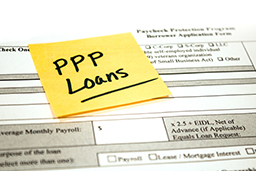The Consolidated Appropriations Act, 2021, passed this week by Congress and, as of this writing, awaiting President Trump’s signature, provides $900 billion in COVID-19-related relief. That includes additional Paycheck Protection Program money—some $280 million in all that some have dubbed “PPP2.”
If and when the 5593-page bill becomes law (Trump has suggested he might veto the legislation if Americans in need do not receive larger direct relief payments), small businesses will be able to avail themselves of another round of potentially forgivable loans. This is true whether or not they previously obtained PPP proceeds. Michelman & Robinson, LLP explains.
Companies That Have Not Already Received PPP Funds
If your small business has yet to receive a PPP loan, now is the time to apply for one, assuming you qualify. The process is largely the same as it originally was when the CARES Act was enacted, though the forgiveness application has been simplified for some borrowers and the eligibility requirements expanded. There has also been a modification to the term “covered period,” which is now defined as the period beginning on the date of the origination of a covered loan and ending either on the date eight or 24 weeks after origination, as elected by the loan recipient.
There is more. PPP eligibility has been extended to certain non-profit organizations designated under 501(c)(6) of the U.S. tax code, including local chambers of commerce. News organizations with 500 or fewer employees and FCC-licensed broadcasters are eligible as well.
Not surprisingly, given some of the backlash and outcries last spring about certain PPP loan recipients, publicly traded companies are ineligible for the new round of loans. So too are businesses that were not in operation on February 15, 2020.
Companies That Have Already Received PPP Loans
Even if your small business already received some form of PPP funding, you may nevertheless be eligible for additional loan proceeds. To qualify, certain criteria must be met, including a showing of significant losses in 2020, as compared to 2019 (read: at least a 25% drop off in revenue). Further, only businesses with fewer than 300 employees can apply for more PPP funding, and the maximum amount available is $2 million.
Loan Forgiveness
As mentioned, the pending relief bill provides for a simplified forgiveness application for some borrowers. A recipient of a PPP loan under $150,000 will only need to furnish (1) a one-page certification providing the number of employees retained because of the loan, the estimated amount of proceeds spent on payroll costs, and the total loan value; and (2) an attestation that the borrower has complied with all applicable PPP requirements.
Additional Eligible Expenses
The relief bill also expands the allowable uses of PPP loans, now including “covered property damage costs, … covered supplier costs, … [and] covered worker protection expenditures.” The covered property damage costs appear to be in response to civil unrest experienced this past summer, which resulted in damage to businesses across the country. For their part, covered supplier costs are meant to assist small businesses in meeting obligations with respect to vendor payments. And finally, covered worker protection expenditures relate to costs associated with outfitting workplaces with COVID-compliant protections and for the purchase of personal protective equipment (PPE) to protect employees and visitors in the workplace.
Deductibility of Business-Related Expenses
There has been much discussion about the deductibility of business-related expenses paid for with PPP funds. Per various revenue rulings promulgated by the IRS, these expenses were previously deemed not deductible. However, the new round of relief includes a provision that expressly allows for the deduction of business-related expenses paid for with PPP loan proceeds. As such, the legislation awaiting President Trump’s signature reverses the IRS decisions made earlier this year and provides that business expenses paid for with PPP loans may be tax deductible.
The attorneys in M&R’s COVID-19 Practice Group will continue to review the full scope of the legislation and circulate updates as necessary. In the meantime, do not hesitate to contact us should you need assistance with PPP.
This blog post is not offered, and should not be relied on, as legal advice. You should consult an attorney for advice in specific situations.

